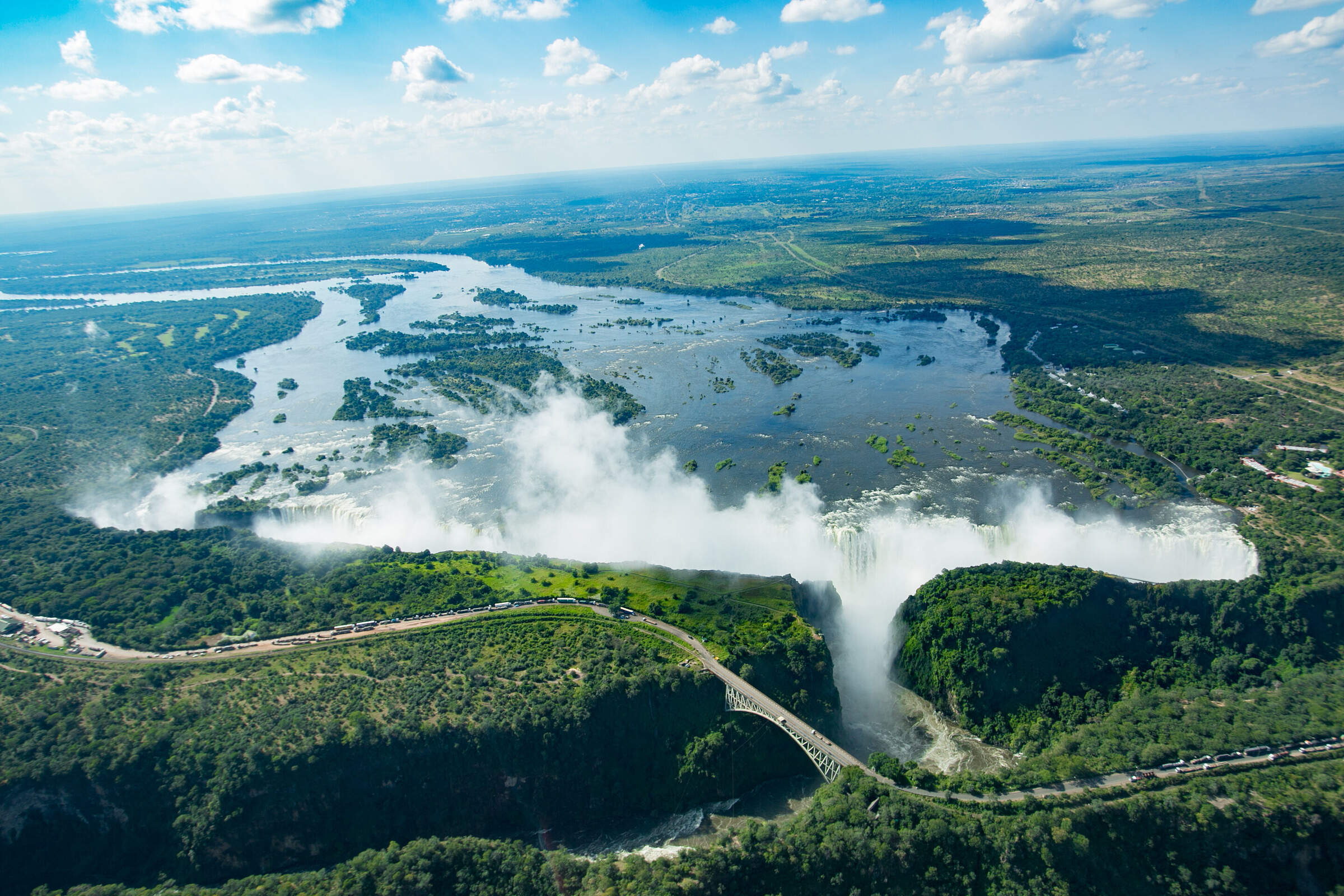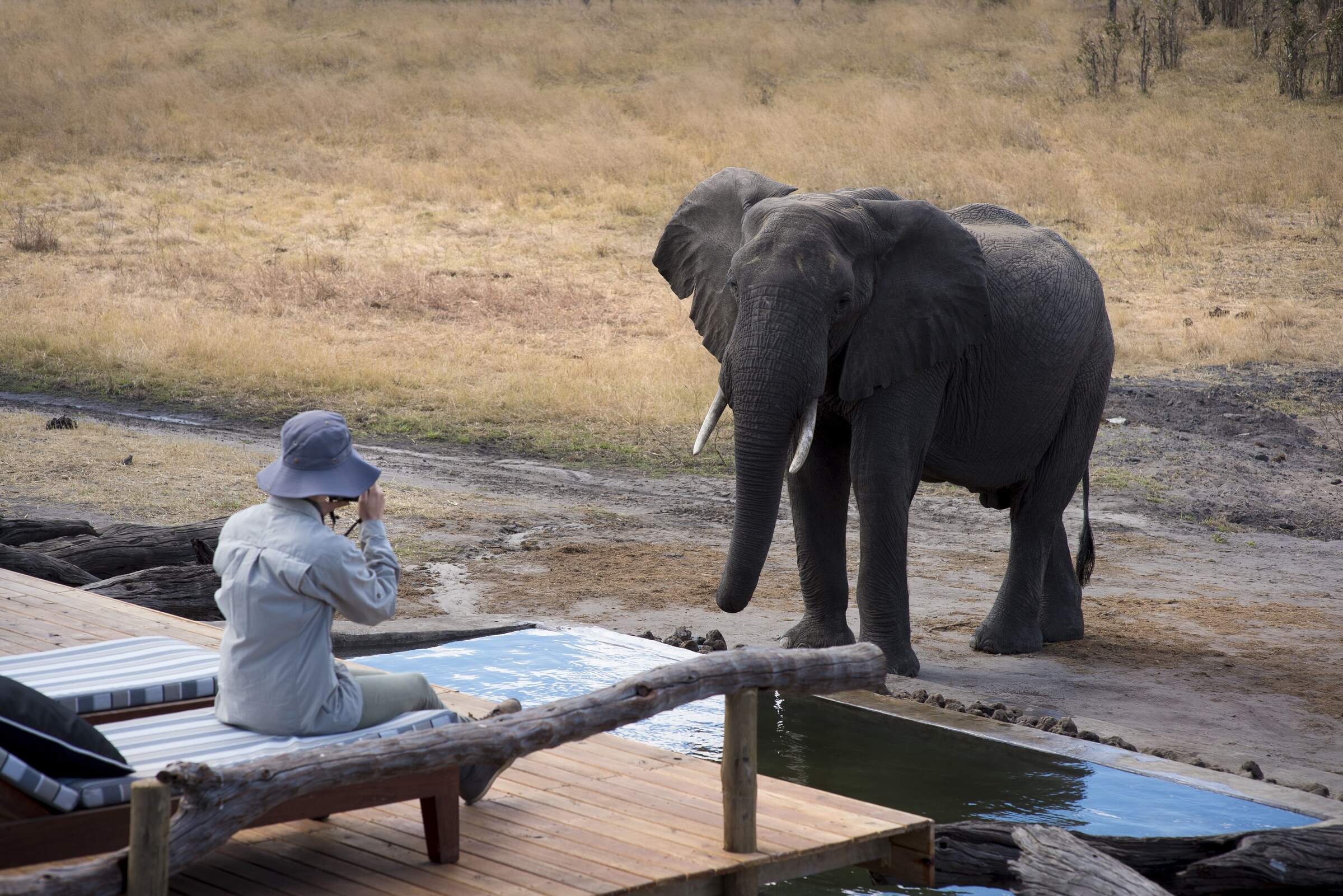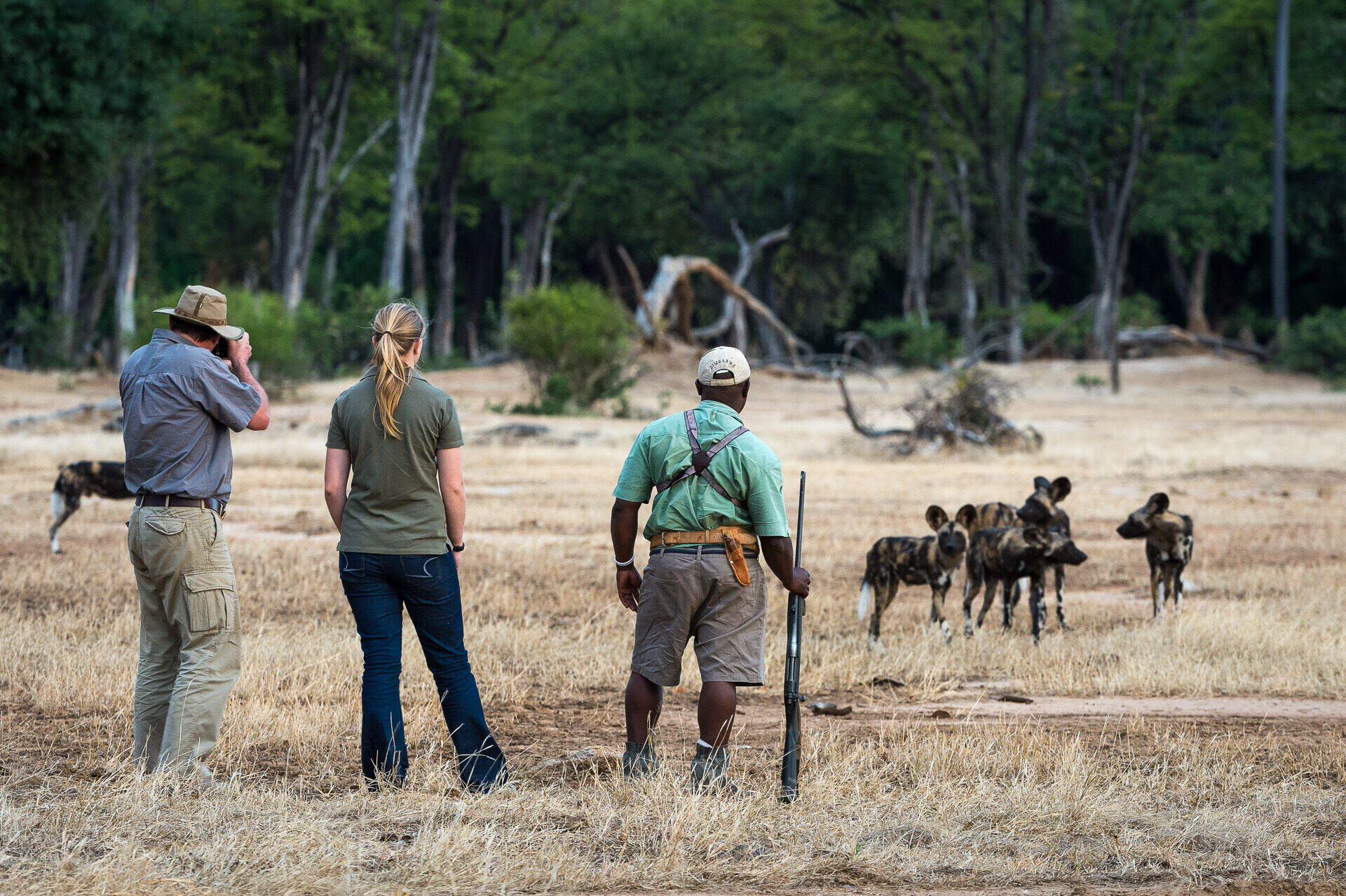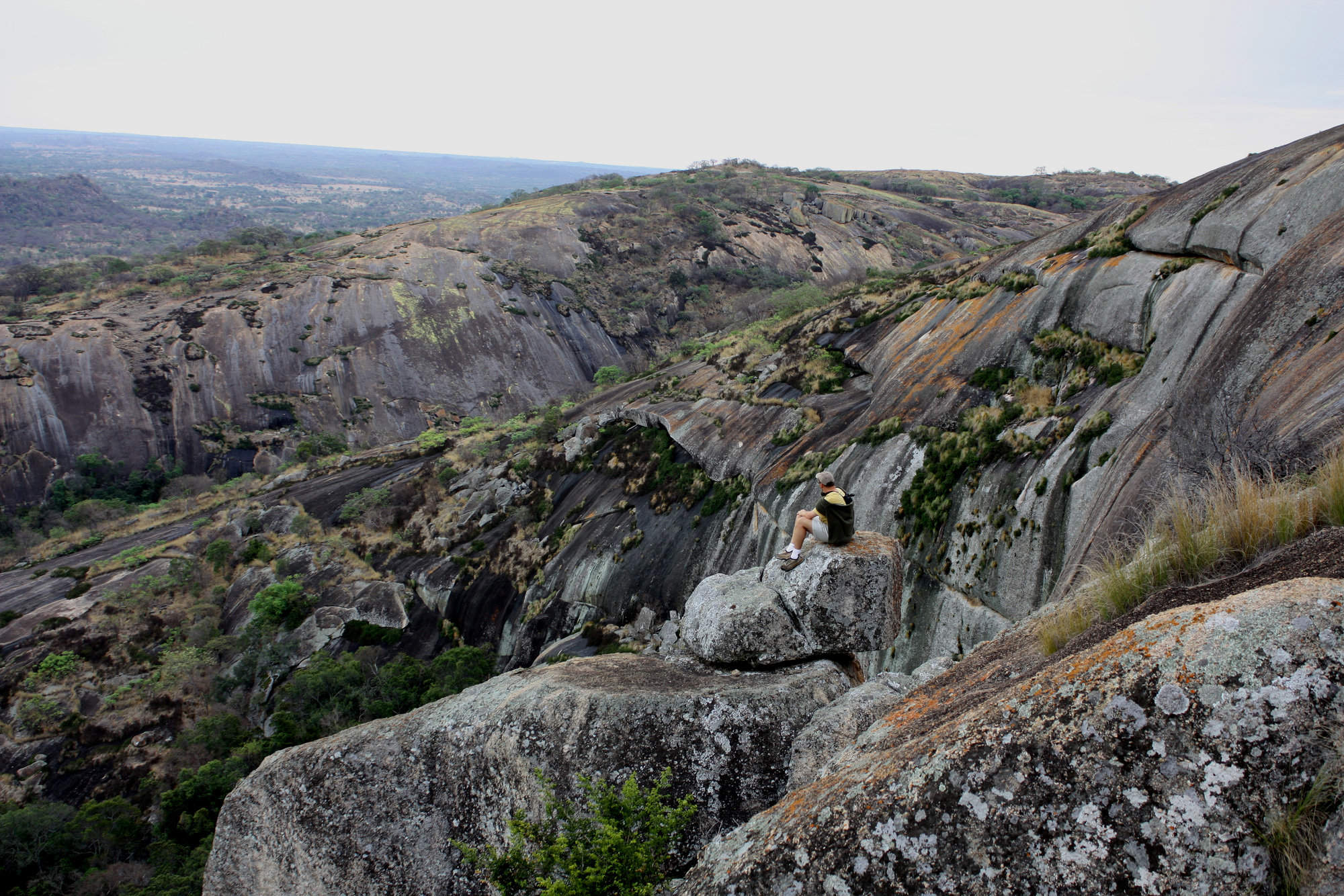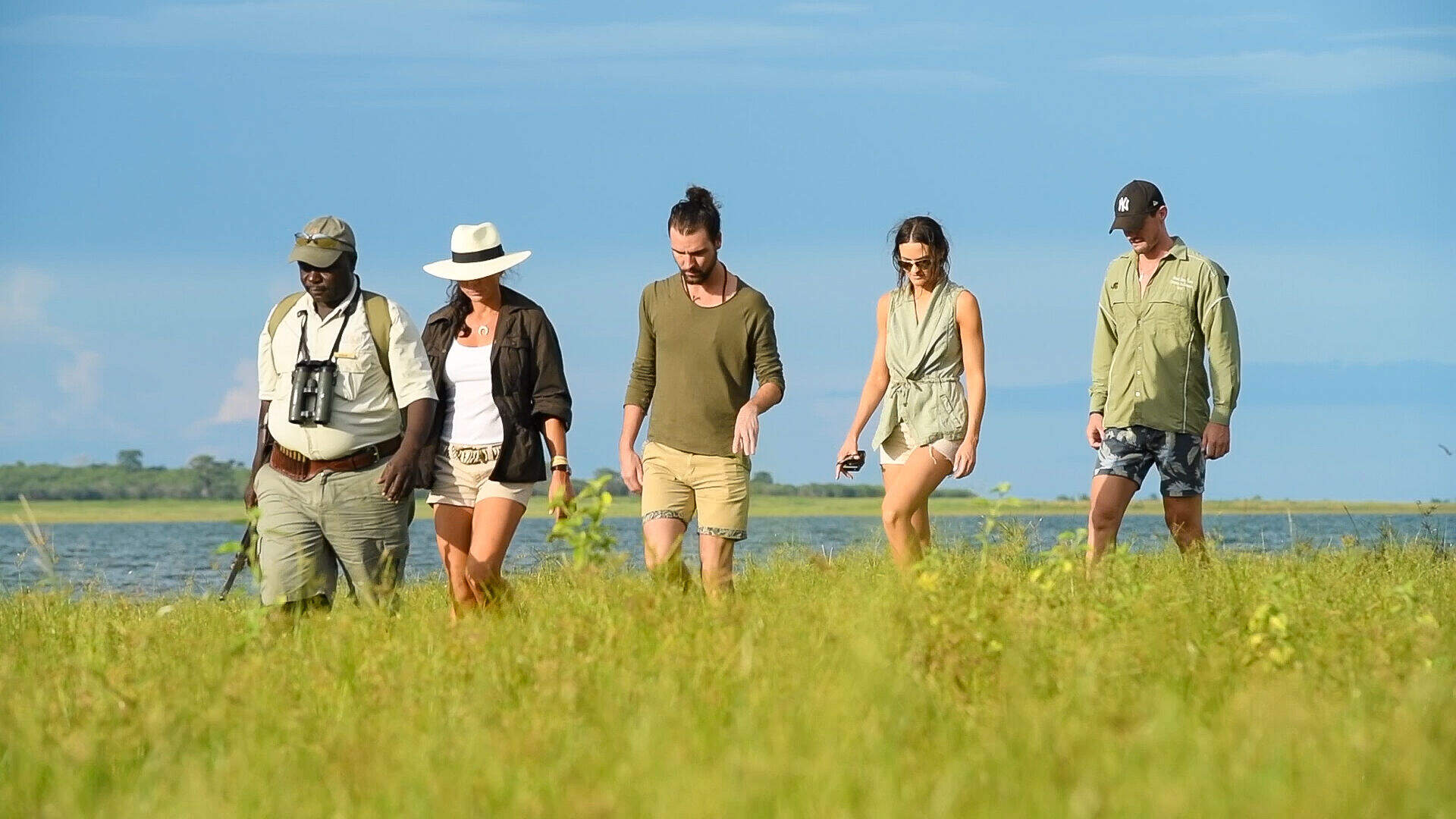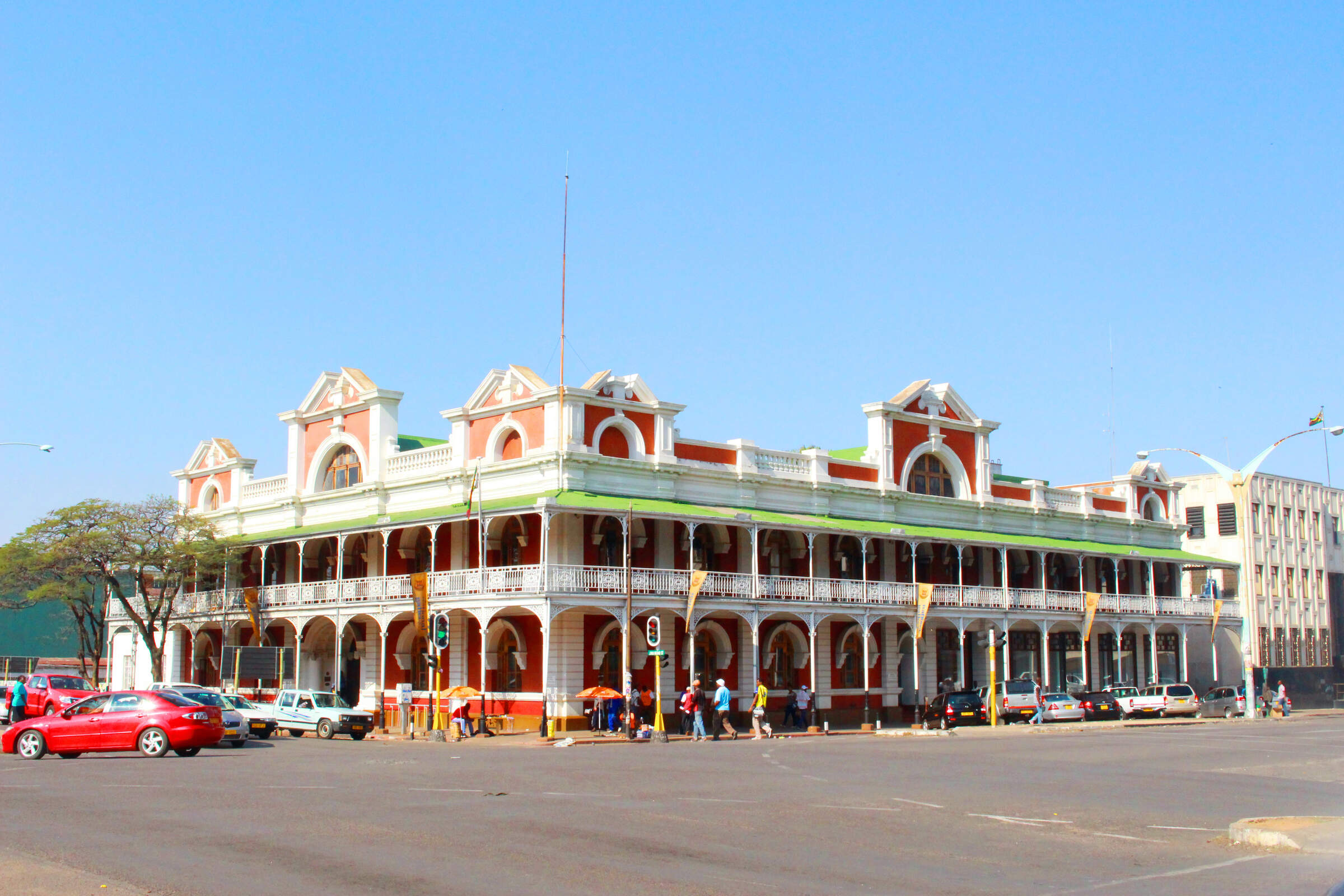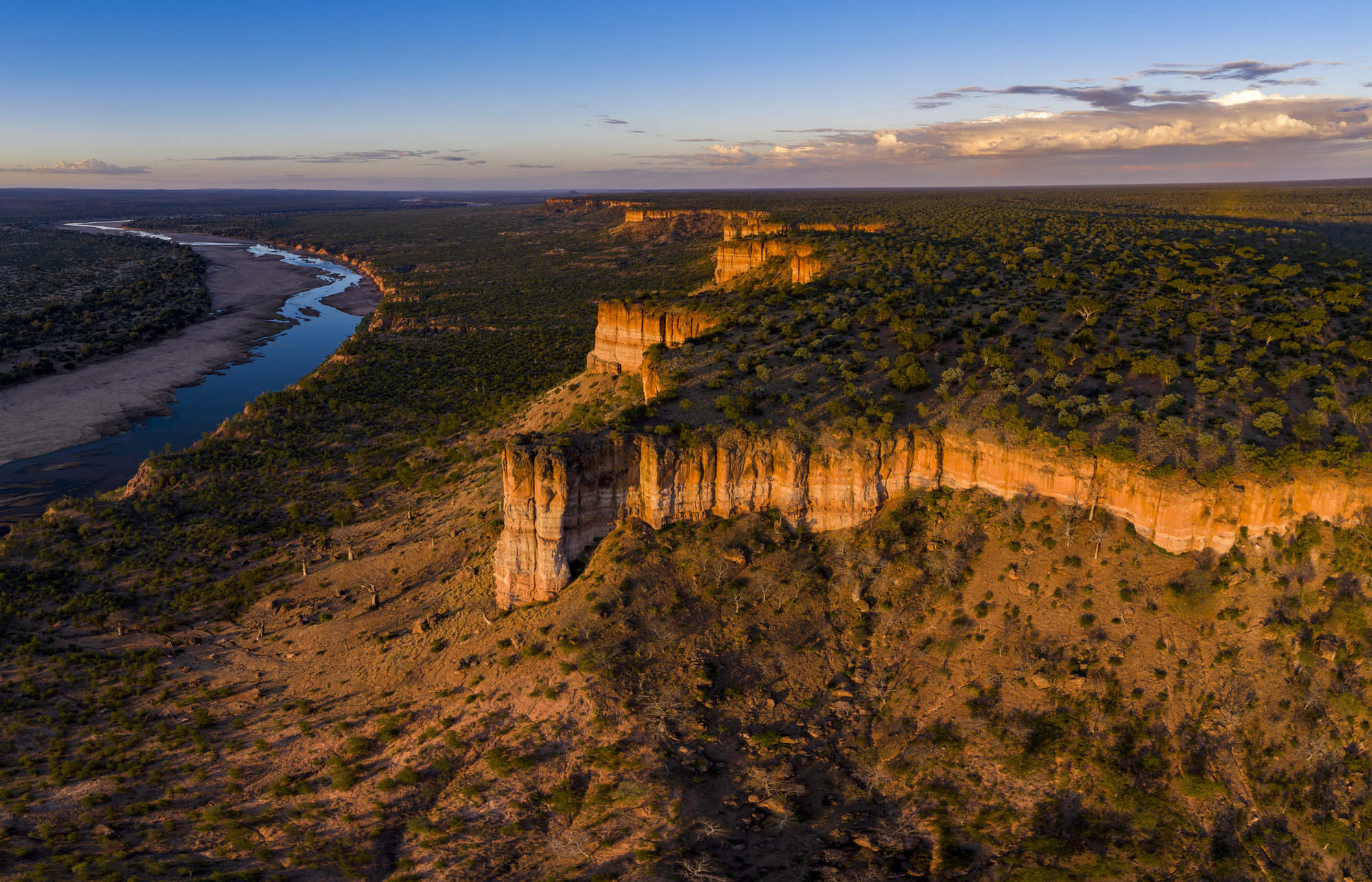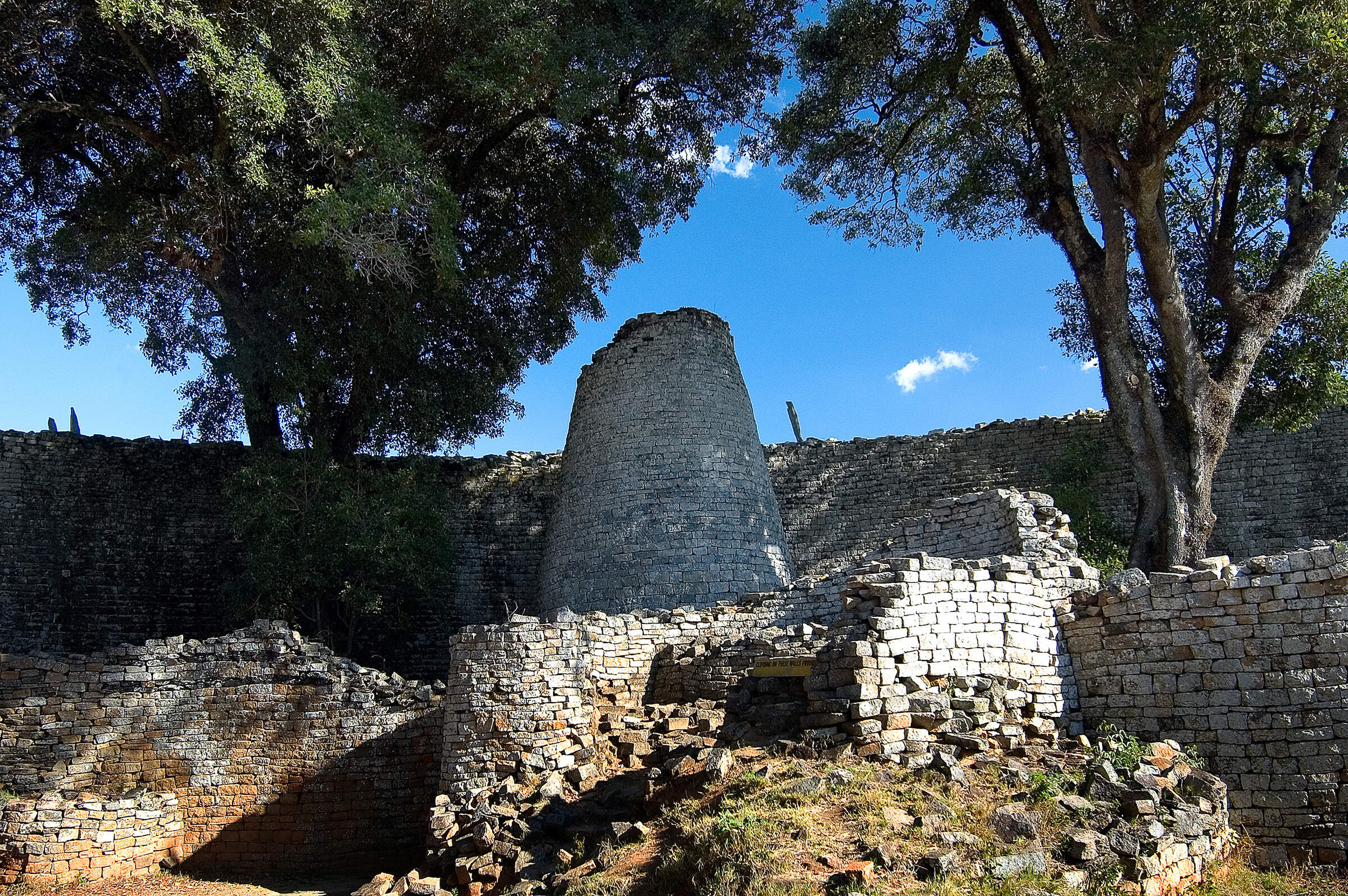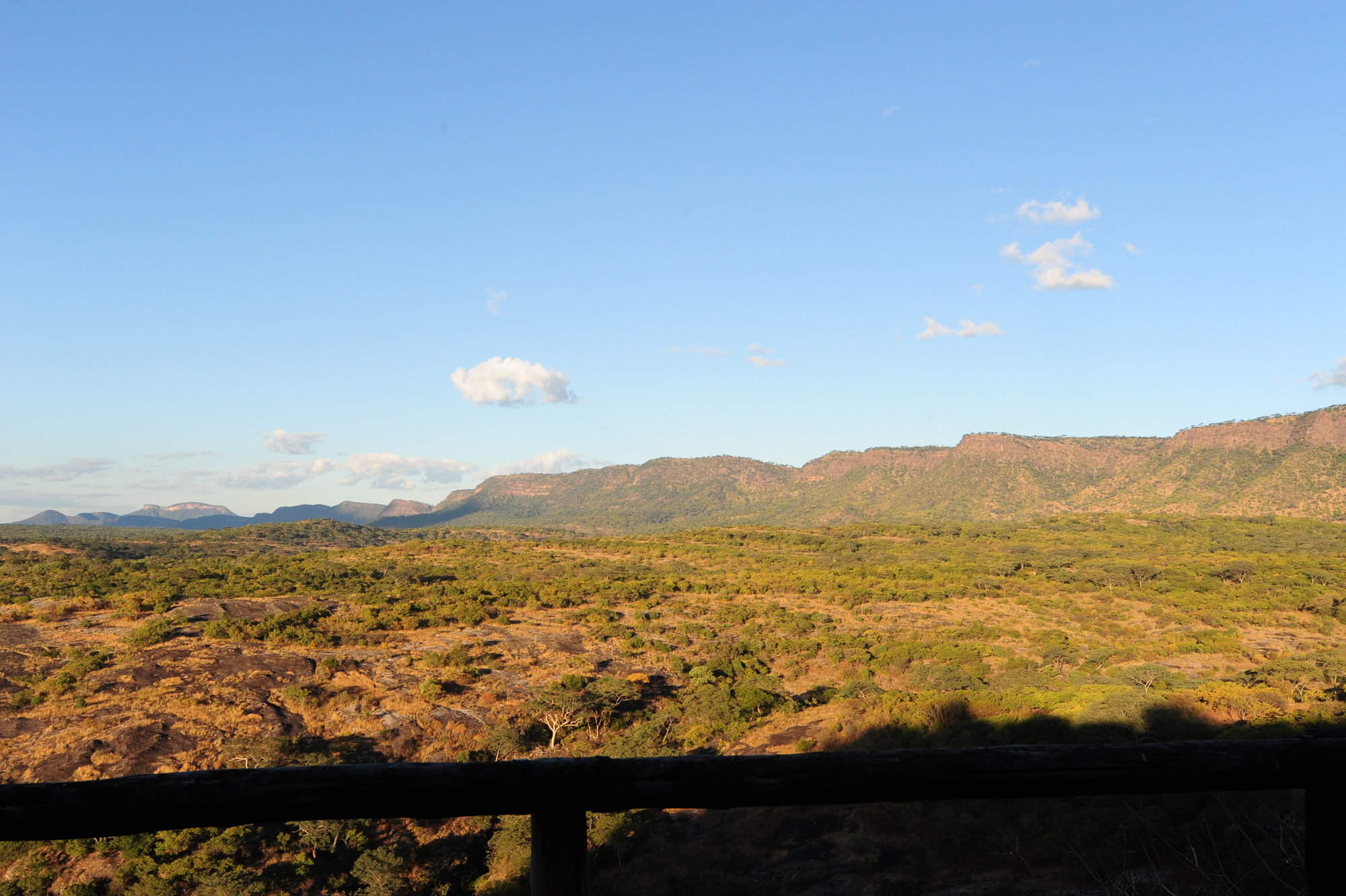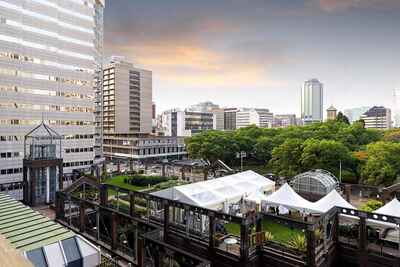
Harare, Zimbabwe’s vibrant capital city
Good hotel options include Meikles Hotel
Harare
Harare
The energetic capital city and the gateway to many regions of the rest of the country.
Founded in 1890, Harare is Zimbabwe’s vibrant capital and commercial hub. It was originally known as Fort Salisbury, and then simply Salisbury, and is just one of several gateways to the rest of the country. Most travellers staying here will be passing through rather than spending an extended period of time. Those who do venture out into the city will find a lively, bustling metropolis which after some tough times is now starting to find its feet again. There’s a hectic vibrancy to Harare that feels unique to urban Africa.
Harare has very good transport links within Africa, with direct flights from/to Johannesburg, Windhoek, Dar es Salaam, Addis Ababa and Nairobi. Emirates also operates a flight from Dubai to Harare via Lusaka. Currently there are no direct flights between Harare and Europe, although there is always talk of these starting up again, so watch this space. At present the majority of Expert Africa’s travellers reach Harare via Jo’burg, taking an overnight flight from London Heathrow on either South African Airways or British Airways.
Harare is also well-situated for light-aircraft flights to and from Matusadona and Mana Pools National Park. Most travellers can fly into Harare on a scheduled flight and then straight on to a camp or lodge further afield. The city is also well-placed for transfers to Great Zimbabwe (about five hours by road) and Gonarezhou National Park (about six hours by road or two hours by light aircraft).
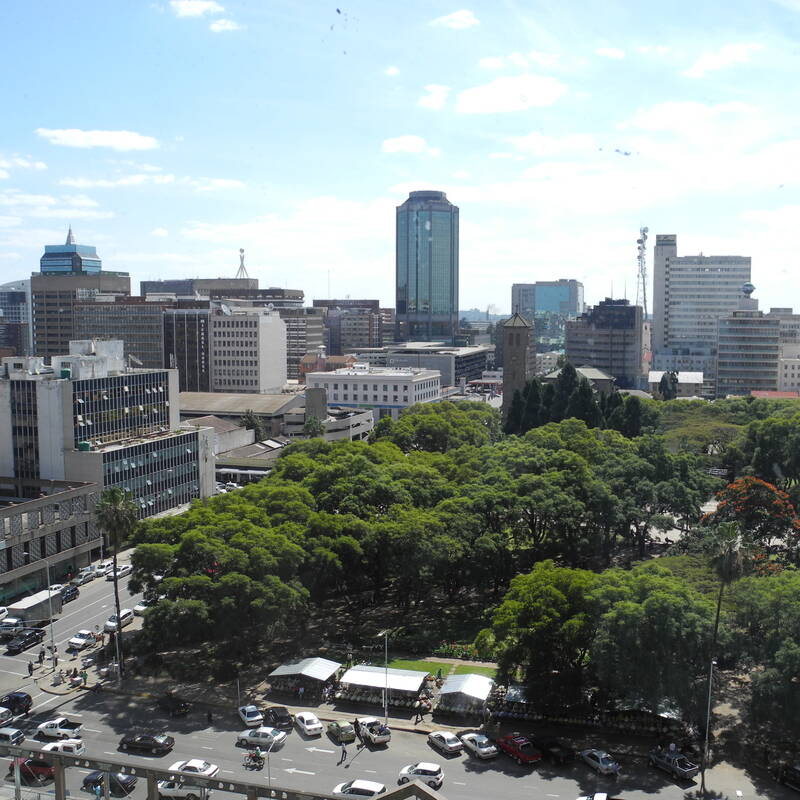
Our top safaris in Zimbabwe
Here are 15 great Zimbabwe safaris to inspire you.
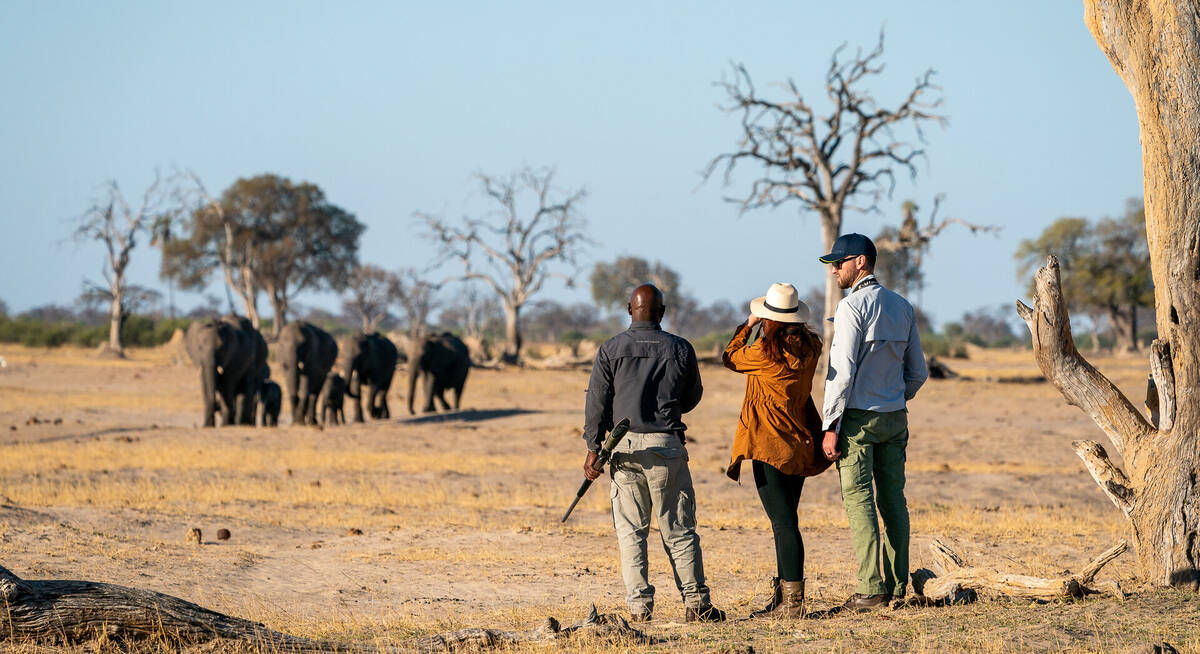
Nyala Safari
10 days • 3 locations
VICTORIA FALLS AIRPORT TO VICTORIA FALLS AIRPORT
A superb luxury safari in iconic Hwange and Mana Pools national parks, staying in a pair of the finest safari camps in Zimbabwe, with a grand finale at Victoria Falls
US$12,060 - US$16,260 per person
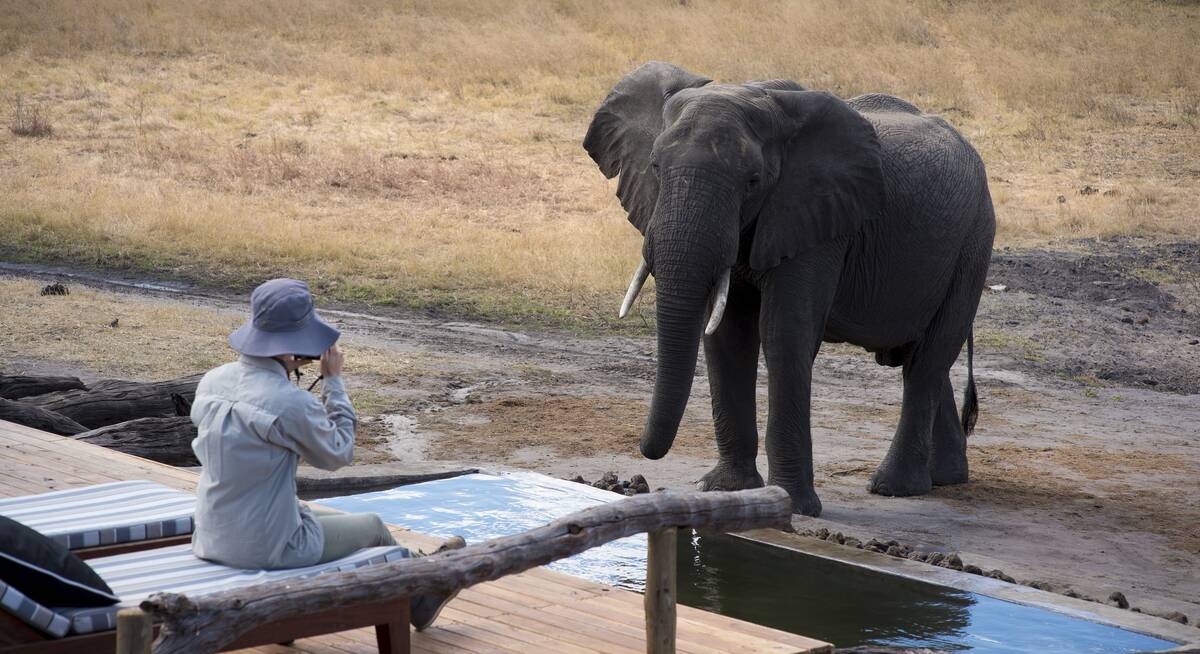
Ground Hornbill Safari
9 days • 3 locations
VICTORIA FALLS AIRPORT TO BULAWAYO AIRPORT
This Zimbabwean odyssey explores Hwange National Park from two small camps, renowned for their great guiding, before ending with insights into cultural history, a little luxury and first-class rhino tracking in the Matobo Hills.
US$5,540 - US$8,560 per person
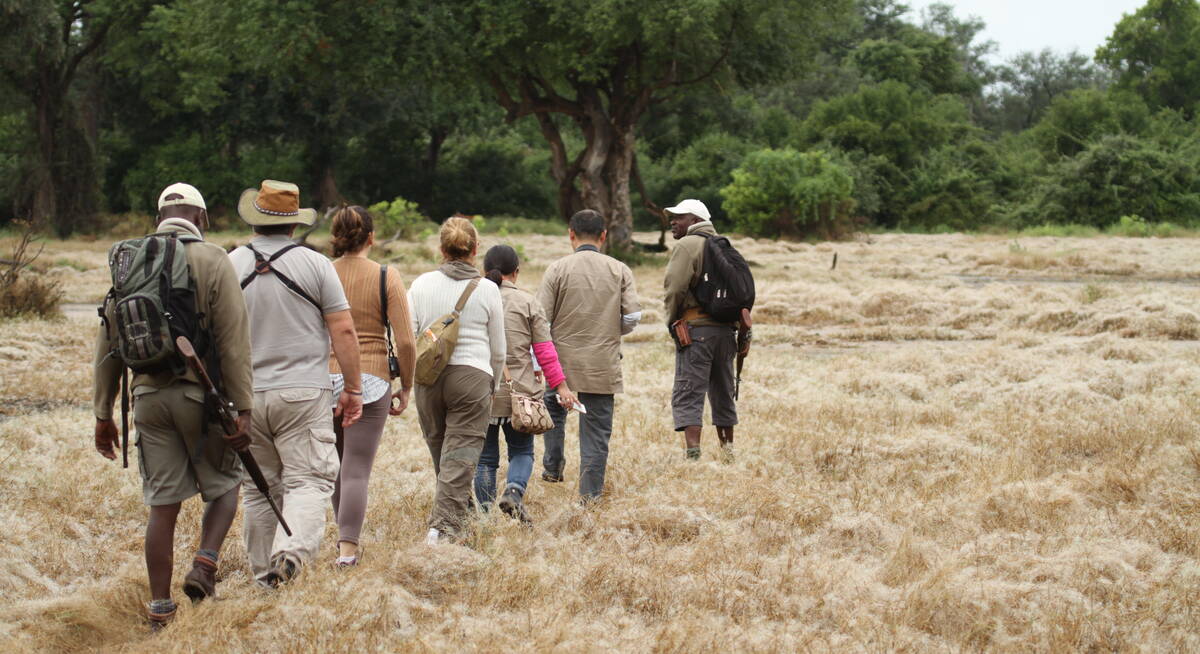
Buffalo Safari
9 days • 3 locations
HARARE AIRPORT TO VICTORIA FALLS AIRPORT
Combining Zimbabwe’s Mana Pools and Hwange national parks with stays at intimate six-tent safari camps offering excellent walking, canoeing and game drives. Superb wildlife viewing and a real wilderness-focused experience.
US$8,840 - US$11,910 per person
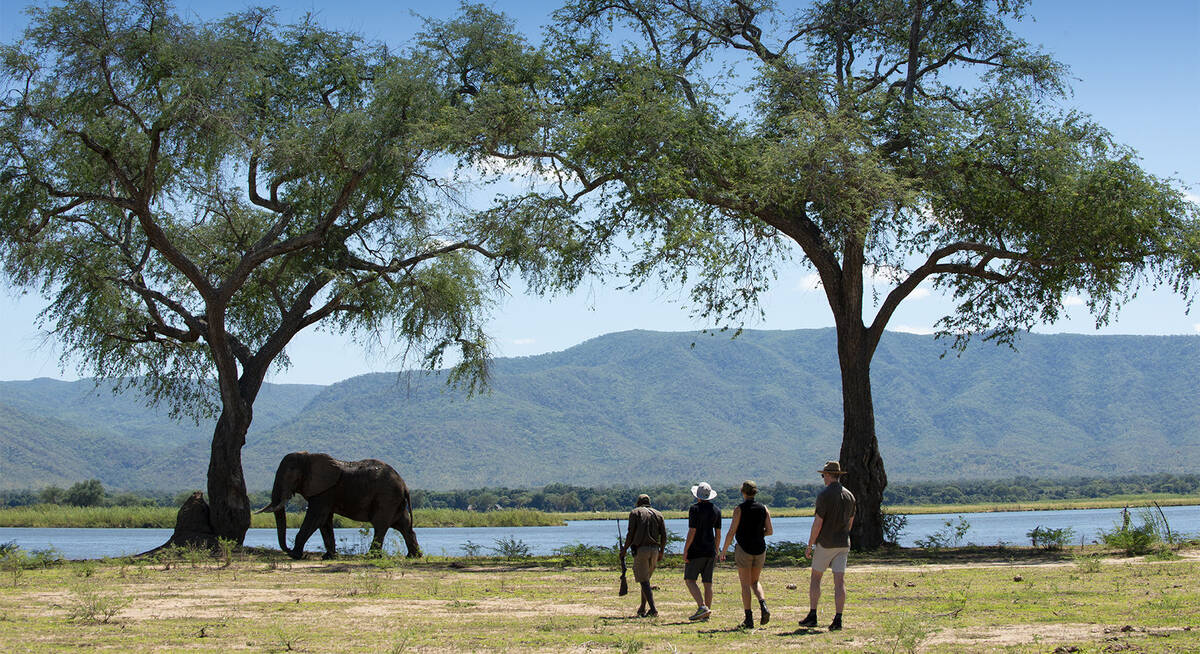
Grysbok Safari
9 days • 3 locations
VICTORIA FALLS AIRPORT TO HARARE AIRPORT
Discover three of Zimbabwe’s iconic destinations in style, flying between Hwange, Mana Pools and Lake Kariba on this varied safari adventure staying at authentic yet luxurious camps.
US$11,070 - US$16,110 per person
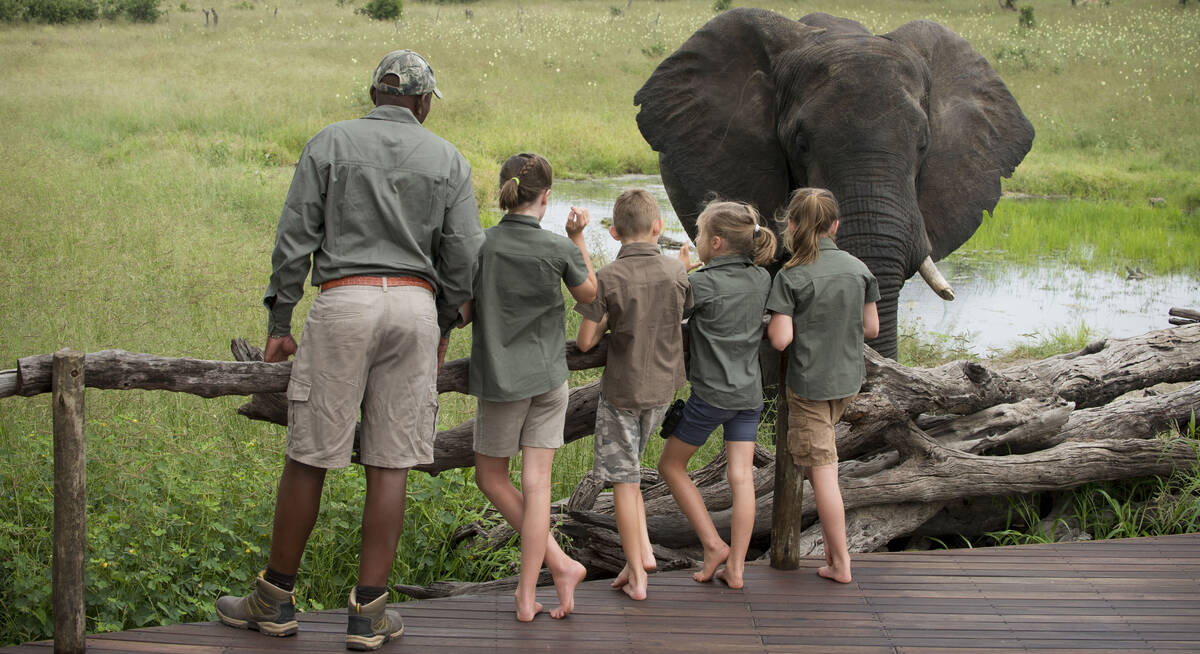
Pied Kingfisher Safari
9 days • 3 locations
VICTORIA FALLS AIRPORT TO HARARE AIRPORT
A luxury safari combining three of Zimbabwe's top highlights. The trip uses some of the finest safari camps in Zimbabwe and is perfect for a family or small group.
US$8,470 - US$11,860 per person
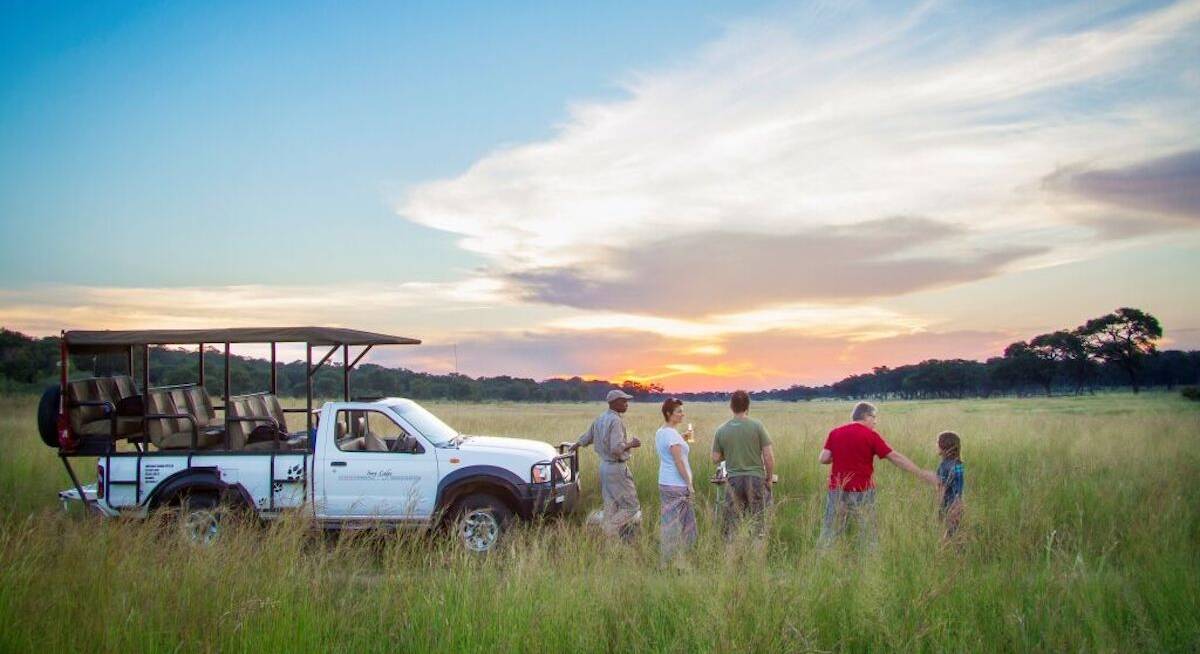
Klipspringer Safari
8 days • 3 locations
VICTORIA FALLS AIRPORT TO BULAWAYO AIRPORT
An outstanding-value Zimbabwe safari exploring Victoria Falls and two contrasting locations in western Zimbabwe – Hwange and the Matobo Hills – giving you a real feel for Zimbabwe, its people and wildlife.
US$3,040 - US$3,570 per person
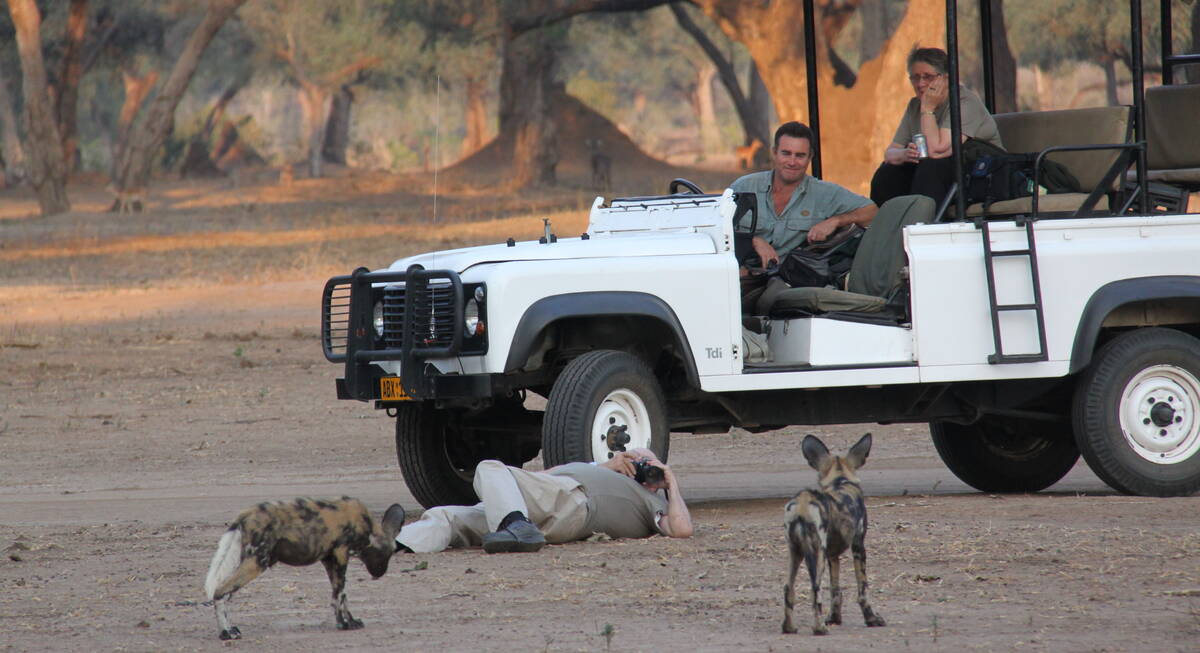
Lion Safari
7 days • 2 locations
VICTORIA FALLS AIRPORT TO VICTORIA FALLS AIRPORT
The classic Expert Africa Zimbabwe safari. Combining two of our favourite independent camps, each run by celebrated guides, exciting game drives, world-class walks and canoeing in premier wildlife watching destinations.
US$7,300 - US$10,280 per person
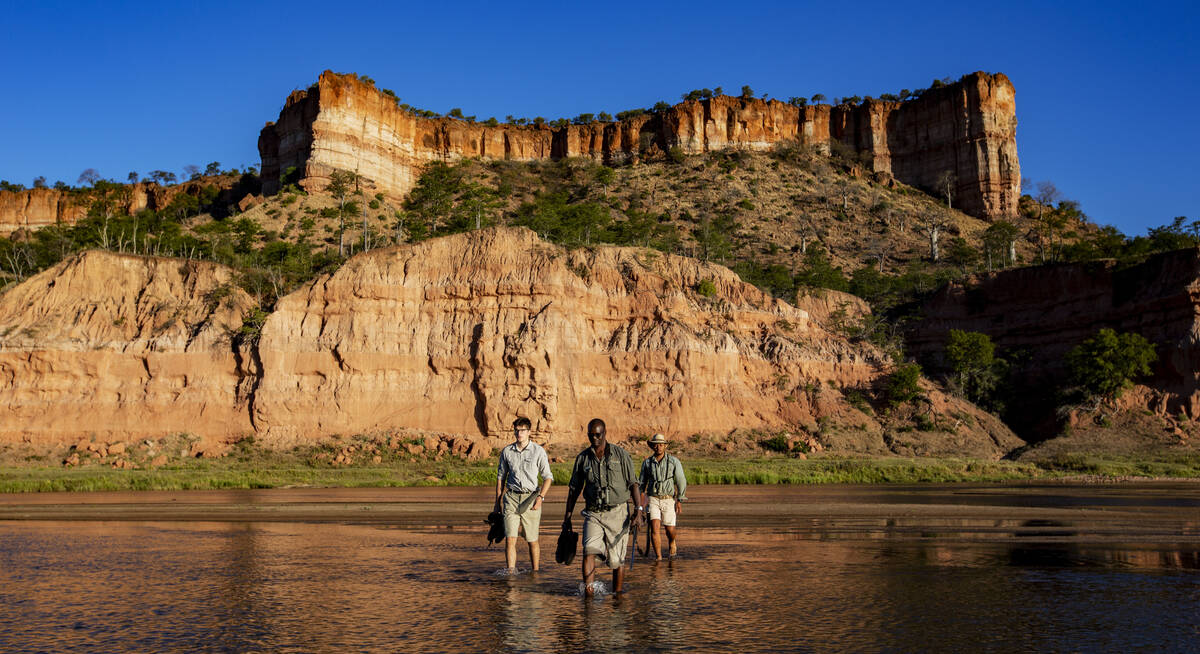
Bat Hawk Safari
7 days • 2 locations
HARARE AIRPORT TO JOHANNESBURG AIRPORT
Explore two areas revered by safari enthusiasts with some of Africa’s best walking and some superb guiding – even by Zimbabwe’s high standards – for a varied and wonderfully immersive wilderness experience.
US$8,670 - US$9,130 per person

Great Egret Safari
12 days • 4 locations
MAUN AIRPORT TO VICTORIA FALLS AIRPORT
This wonderfully varied adventure combines Botswana's Okavango Delta and a live-aboard houseboat safari on the Chobe River, with big game in Zimbabwe's dry Hwange National Park and the stupendous Victoria Falls.
US$10,360 - US$17,400 per person
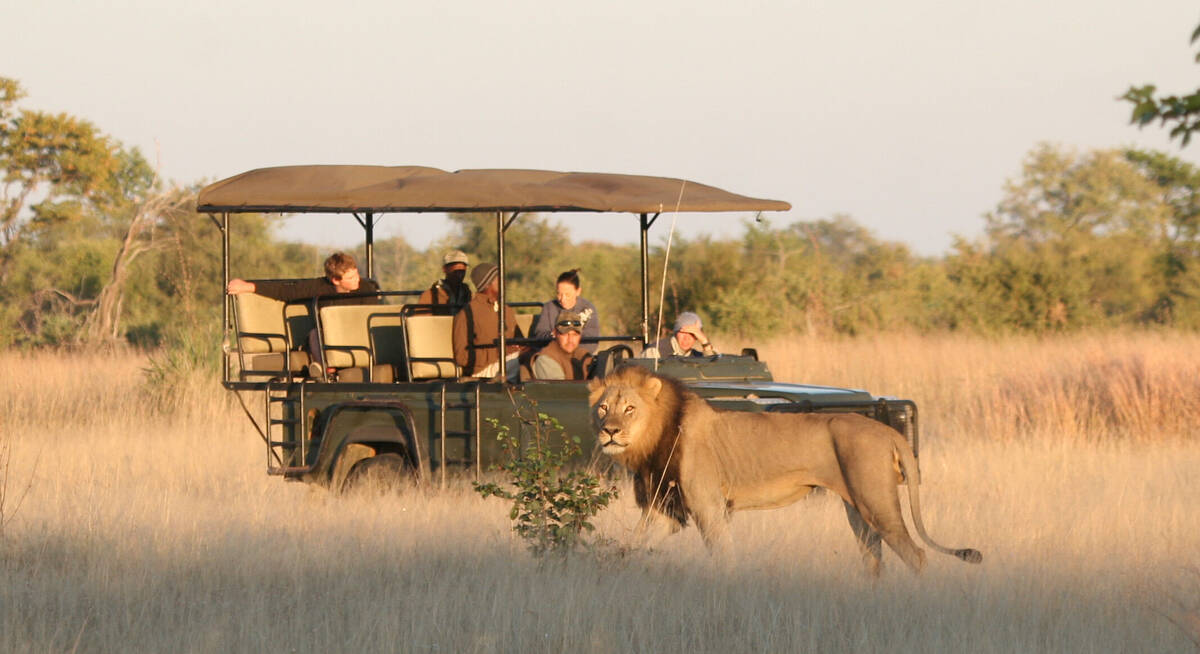
Side-striped Jackal Safari
6 days • 2 locations
VICTORIA FALLS AIRPORT TO VICTORIA FALLS AIRPORT
Get an in-depth experience of Zimbabwe’s colossal Hwange National Park, staying at two experience-focused camps with excellent guiding in contrasting areas. An adventurous safari for the real enthusiast.
US$3,930 - US$6,420 per person
Most recent reviews of our trips to Harare
Click below to browse all 8 reviews from Harare. All from our travellers; all are in full & unedited.
Arrived 28 Apr 2022, 10 nights
"Trip for the first time in 2 years"
Overall rating: Excellent
Arrived 5 Aug 2021, 18 nights
"Zimbabwe 2021"
Overall rating: Excellent
Arrived 19 Jul 2021, 24 nights
"July/August 2021: Zimbabwe and Tanzania"
Overall rating: Excellent
Arrived 21 Jul 2021, 15 nights
"Once in a life time experience!"
Overall rating: Excellent
Arrived 19 Oct 2018, 9 nights
"My Oct 2018 trip"
Overall rating: Excellent
Arrived 25 Aug 2018, 20 nights
"Zimbabwe: still beautiful and welcoming"
Overall rating: Excellent
Arrived 31 May 2018, 26 nights
"My May/June trip"
Overall rating: Excellent
Where to stay in Harare
Our suggestions for places to stay in Harare
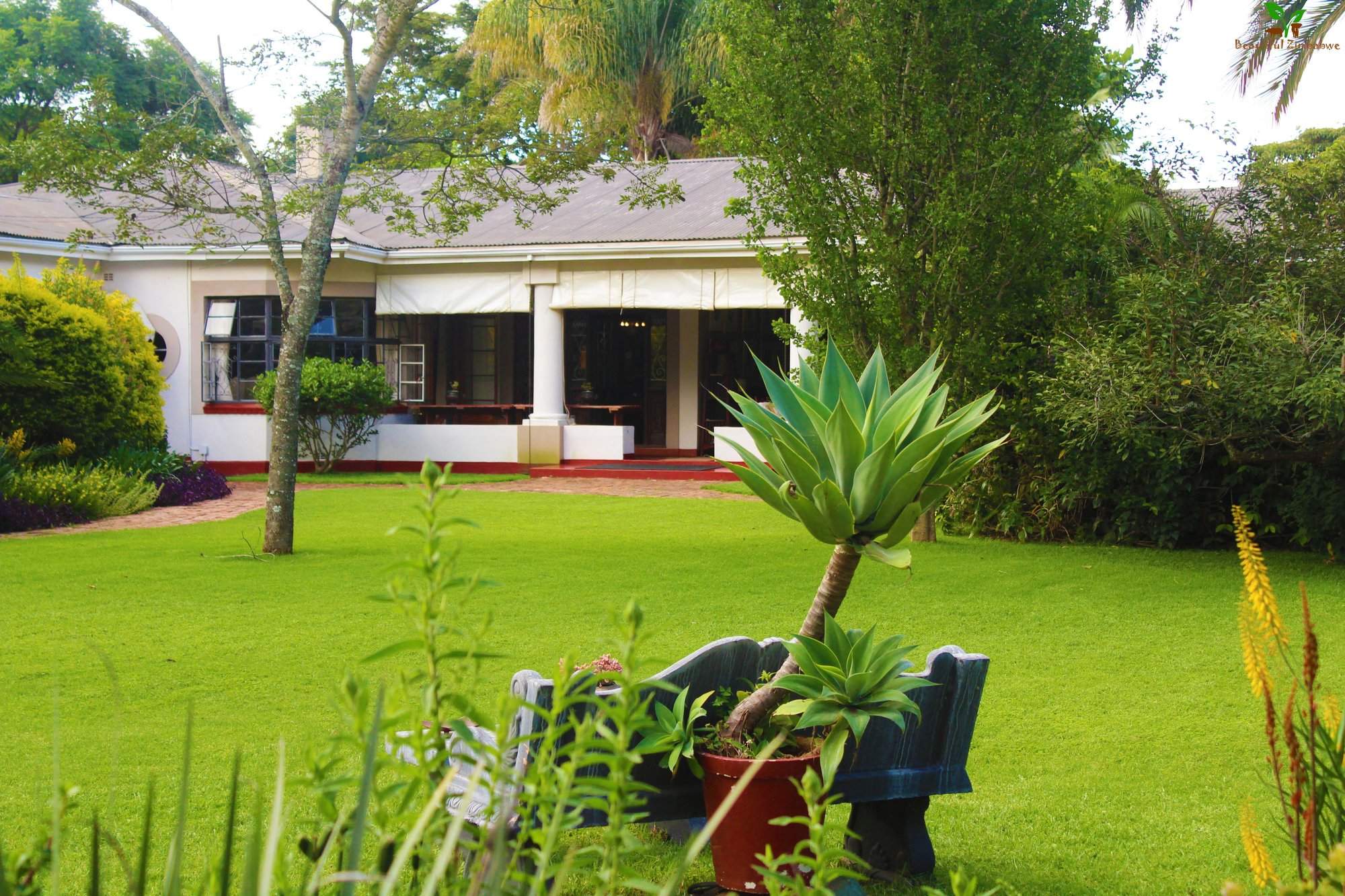
Armadale Lodge
In a leafy suburb of Harare, yet convenient for the airport, Armadale Lodge is a smart but relaxed base for a night or two.
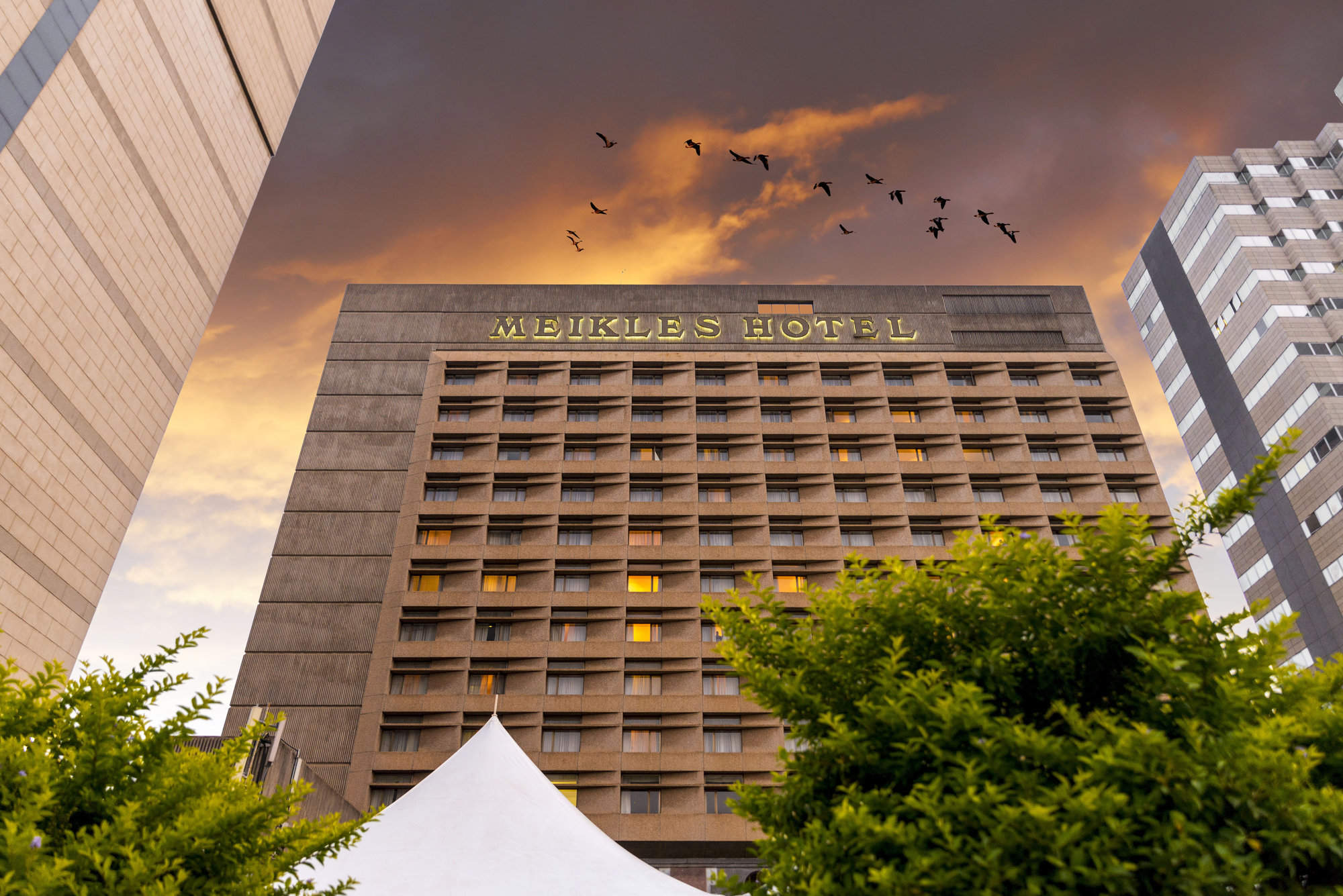
Meikles Hotel
Perhaps the best large hotel in Harare, the Meikles is located in the centre of the city, overlooking Africa Unity Square Park.
When to go to Harare
Our month by month guide: What it's like to visit Harare in Zimbabwe
Jan
Feb
Mar
Apr
May
Jun
Jul
Aug
Sep
Oct
Nov
Dec
Zimbabwe in January
January falls in the middle of Zimbabwe’s rainy season and is the wettest month of the year. Heavy rainfall occurs most days, flooding seasonal rivers and waterholes, with the occasional sunny spell.
With the high levels of precipitation the wildlife in the national parks becomes widely dispersed, taking advantage of the abundance of food and water, and is easily hidden by the thick, green bush.
While sightings of larger animals are possible, and many species drop their young at this time, game viewing is often sparse. However, many migratory species of bird arrive in Zimbabwe making it a peak month for birding.
The rains create incredibly sticky mud in Mana Pools National Park, preventing access and causing camps to close for the season. The majority of the camps in other parks remain open, with low rates attracting a smattering of visitors.
- Peak of the rainy season: hot & humid with heavy rain most days
- Bush exceptionally thick and green, with poor game viewing
- Species such as impala drop their young
- All camps in Mana Pools closed
- Very few visitors, and low rates at open camps
Our view
A time to avoid if possible
Weather in January
Zimbabwe in February
February remains well within Zimbabwe’s rainy season. Although total rainfall drops, relatively short thunderstorms can still be expected most afternoons. On the plus side, there is a greater chance of some sunshine in-between.
Much of the country remains waterlogged, closing access to Mana Pools and severely restricting walking safaris in other parks. While game drives and canoeing remain an option, the abundance of water disperses animals, and thick grass can make it difficult to spot larger species, but birding remains excellent. Conversely, this is a great time of year to view the landscape, and is excellent for photographers. Sporadic cloud cover and clear air can make for some spectacular sunsets too, particularly over Lake Kariba and the Zambezi River where the reflections off the water add to the beauty.
- Generally wet with frequent thunderstorms & hot humid days
- Poor wildlife viewing due to dispersed animals & thick bush
- Clear air, green landscapes & exceptional sunsets
- All camps in Mana Pools closed
- Very few visitors & low rates at camps that are open
Our view
This is not a great time to visit
Weather in February
Zimbabwe in March
March is the final month of Zimbabwe’s rainy season, when the rains start to trail off and sunny days become the norm. However, some days the clouds can still build, breaking into thunderstorms in the afternoon.
Mana Pools remains closed throughout the month but the majority of camps in Hwange, Matusadona and Gonarezhou remain open. Here, the landscape is green and alive, with migrant species of birds taking advantage of the abundant insect life. Larger animals remain elusive though, and walking safaris remain restricted.
By this time of year, the rains have normally trickled down to the Zambezi River and the flow of water over the Victoria Falls starts to increase, but without kicking up too much spray to obscure the views.
- Last month of the rainy season: hot, humid days with occasional storms
- Lush vegetation means good birding, but poor game viewing
- Views of the Victoria Falls improve
- All camps in Mana Pools closed
- Open camps have few visitors & low rates
Our view
This is not a great time to visit
Weather in March
Zimbabwe in April
April marks the end of Zimbabwe’s rainy season and the end of summer. Clear skies are the norm, with just the occasional shower. Temperatures start to drop, failing to reach 30ºC most days and dropping down to around 10ºC at night.
As the rain fades the landscape starts to dry out. While the vegetation remains thick and green, the soil in Mana Pools dries enough for camps to open, and the only camps to remain closed are the most remote bushcamps in Hwange. Although viewing of larger animals remains tricky, the improved weather starts to draw back visitors, as do prices significantly below those in the peak season.
The Zambezi River and flow of water over the Victoria Falls is at its highest, although large amounts of spray diminish views of the waterfall itself.
- Transitional period, with much lower rainfall & falling temperatures
- Wildlife is still dispersed & hard to see, but sightings improving
- Views of the Victoria Falls often obscured by spray
- Camps in Mana Pools open
- Visitors start to return & camps increase their rates
Our view
A good time to visit, with pros & cons
Weather in April
Zimbabwe in May
The first month in the dry season, May is also Zimbabwe’s first month of winter. If the rains are particularly late in a given year, you may catch the odd shower, but you can expect clear and sunny days the majority of the time. While it’s warm in the daytime, temperatures drop to single digits at night, so bring a warm jumper and gloves for early morning drives.
With the rain having cleared the air, the sky is bright blue, and it’s the best time of year for photography.
Even the most remote camps in Zimbabwe are now open. With the lack of rainfall, vegetation dies back significantly, and seasonal rivers return to sand. Not only does this open up the possibility of walking safaris, but wildlife viewing becomes much more reliable.
- Start of the dry season, with milder days and cold nights
- Game viewing significantly improves as vegetation dies back
- Vegetation starts to turn from green to brown
- Best time for photography with crystal clear air
- Visitors start to return; all camps open & rates increasing
Our view
A very good time to visit
Weather in May
Zimbabwe in June
During June you can virtually be guaranteed of dry and sunny days, although temperatures continue to drop, and can get close to freezing at night in Hwange National Park. Jumpers, jackets and gloves are strongly recommended for early mornings and evenings.
The opportunities for wildlife viewing improve throughout the month as the landscape rapidly dries, and the animals start to gather on the banks of the Zambezi River and around Hwange’s waterholes.
Water levels in the Zambezi River start to drop, reducing the amount of spray kicked up at the Victoria Falls and greatly improving visibility, but still allowing a full curtain of water to cascade over the edge.
- Middle of winter, with night-time temperatures close to freezing
- Game viewing significantly improves throughout the month
- Views of the Victoria Falls are at their best
- Noticeable increase in visitor numbers
- Camps considerably more expensive
Our view
A very good time to visit
Weather in June
Zimbabwe in July
July sits in the middle of Zimbabwe’s dry season. Although it’s warm at midday, temperatures are generally cold and in Hwange it’s been known to drop below freezing at night, with the lower-altitude Mana Pools feeling a bit warmer.
With wildlife clustering around the few remaining waterholes, sparse vegetation, and some of the best views of the Victoria Falls, this is one of the most popular times to travel, with camps charging peak season rates to reflect this. That said, visitor numbers to the country in general remain low, and outside of the Victoria Falls it’s rare for any areas to feel crowded.
- Middle of the dry season with almost no chance of rain
- Clear sunny days, but very cold nights
- Wildlife viewing good; game drives and walking safaris unrestricted
- Views of the Victoria Falls at their best
- Camps charging peak season rates
Our view
A very good time to visit
Weather in July
Zimbabwe in August
While August is the end of winter and temperatures are starting to creep up, mornings and nights are still cold, and game drives in open vehicles can feel particularly chilly. Well into the dry season, the landscapes will have mostly transformed from green to brown and wildlife viewing in Zimbabwe’s national parks is approaching its best. Due to dust kicked up into the atmosphere and smoke from bush fires you may start to notice a haze on the horizon, but this doesn’t significantly impact photography.
August is one of the most expensive months, and the pleasant weather and decent game viewing attracts lots of visitors. While the national parks rarely feel crowded, Victoria Falls accommodation can sell out a year in advance.
- Warm, sunny days but cold mornings & nights; almost no chance of rain
- Wildlife viewing nearly at its best
- Landscape turns brown, & an atmospheric haze develops
- All camps charging peak season rates
Our view
Fantastic: the very best time to visit
Weather in August
Zimbabwe in September
Temperatures in September rarely drop below 15ºC, but are yet to reach the oppressive highs of summer. It will normally have been five months since the last drop of rain, so antelope and elephants cluster around whatever water remains, with predators never too far away.
The landscape is very brown, and the haze building on the horizon takes some of the colour out of the sky, so while animal subjects are plentiful, the background is not ideal for photography.
The combination of incredible wildlife viewing, hot and sunny weather, and cheaper flights outside of the school holidays make this the most popular time of year to travel, and availability at the camps can become limited up to a year in advance.
- The best month for weather, with a pleasantly warm temperature range
- One of the best months for game viewing
- Victoria Falls starting to dry but still impressive on Zimbabwean side
- All camps are charging peak season rates
- Most popular time to travel, & space can be limited
Our view
Fantastic: the very best time to visit
Weather in September
Zimbabwe in October
October is the last month of the dry season with little chance of rain but building humidity. While the higher elevation of Hwange National Park limits temperatures to the 30s Celsius, they can easily top 40ºC in Mana Pools.
With little vegetation or water, wildlife is drawn to the few remaining water sources and viewing is at its best; visitors who brave the heat can be rewarded with some exceptional sightings, although haze in the air diminishes photos. Maximum visibility and dense wildlife concentrations can also make for very rewarding walking safaris, although the heat can make them uncomfortable.
Water levels in the Zambezi at the Victoria Falls drop significantly, and large stretches of the waterfall are a dry cliff-face – although it never dries completely. Camp rates remain at their peak, but visitor numbers drop as people avoid the heat.
- Last month of the dry season; very hot with building humidity
- Wildlife viewing at its very best
- Dust & smoke in the air diminish photographic opportunities
- Victoria Falls starting to look very dry
- Camp rates remain at their peak
Our view
A very good time to visit
Weather in October
Zimbabwe in November
November is a transitionary period, with high temperatures and humidity. While they can’t be predicted with any precision, the first rains normally arrive halfway through the month, in the form of thunderstorms lasting a few hours each day.
Early November is a popular time to travel as the camps drop their rates, so if you’re lucky you can get peak-season game viewing at low-season rates. This is a gamble though as if the rains do arrive, animals are no longer limited to a few dangerous waterholes and will disperse into the bush. While all the camps in Mana Pools intend to remain open, the rains can make the airstrips unusable so you may find yourself moved to a different park, a risk that increases through the month.
- Typically the start of the rains in Zimbabwe
- Temperatures & humidity levels remain high
- Wildlife viewing rapidly diminishes as the rains arrive
- Camps remain open, but risk early closure in Mana Pools
- Much cheaper time to travel as camps drop their rates
Our view
A good time to visit, with pros & cons
Weather in November
Zimbabwe in December
By December the rainy season has begun in earnest; this is one of the wettest months in Zimbabwe, with heavy thunderstorms most afternoons and occasionally continuous rain for a couple of days. While temperatures start to cool down the high levels of humidity can make the heat feel more oppressive.
With the rains comes an explosion of green growth, and the dust and smoke are washed out of the air. The resulting scenery – with the occasional bright blue skies – can be fantastic for photographers. Thick vegetation and plentiful water makes viewing of larger animals tricky, but with migratory species arriving the birding is at its best.
All camps in Mana Pools and the remote Hwange camps close, with those remaining open charging their lowest rates.
- One of the wettest months in Zimbabwe
- High temperatures & levels of humidity
- Wildlife viewing poor, but birding good
- Lush green landscapes & clear air; great for landscape photography
- All camps in Mana Pools closed
Our view
This is not a great time to visit
Weather in December
Harare: In detail
Harare
Where to eat in Harare: bars and restaurants
Also serving great food is Victoria 22, which is popular with locals and international visitors alike. It serves European cuisine with the odd game dish thrown in too. Alo Alo may not look like the picture the name paints in the mind (it’s not French, for a start), but the menu is wide ranging and the food is very well-presented.
For those looking to experience Thailand in Africa, Sabai receives great reviews, and we are reliably informed that it is well worth visiting.
Many of the best places to eat, including these, are found in the suburbs, usually in converted residential buildings. They are often quite difficult to find if you’re not familiar with the areas, especially after dark, so do ask reception at your hotel to organise a reliable taxi.
What to do and see: activities in Harare
For animal lovers there is a very well-run wildlife sanctuary, Wild is Life, just outside Harare, where full- and half-day visits can be arranged. The sanctuary looks after and rehabilitates orphaned, injured and endangered animals, and while it’s a far cry from the wilderness areas of Zimbabwe’s national parks, the opportunity to support its work is well worthwhile.
Museums in Harare
Also worth visiting are Zimbabwe’s National Botanic Gardens. Spread over an area of almost 700 hectares, the collection consists primarily of indigenous plant species from Zimbabwe’s various regions.
Anyone in Harare interested in African contemporary art and Zimbabwe’s artistic heritage should visit the National Gallery of Zimbabwe. Local artists frequently exhibit here and it’s worth spending a couple of hours exploring.
Map of Harare
Choices for where to stay in Harare
2 best hotels and places to stay in Harare
There are some truly delightful accommodations situated in Harare’s spacious and scenic suburbs offering luxury and fine dining away from the hustle and bustle of the city. Ask us for more details of what's where, and what's likely to suit you best!

Armadale Lodge
In a leafy suburb of Harare, yet convenient for the airport, Armadale Lodge is a smart but relaxed base for a night or two.

Meikles Hotel
Perhaps the best large hotel in Harare, the Meikles is located in the centre of the city, overlooking Africa Unity Square Park.

Looking for inspiration on where to travel next?
Visit our trip chooser to explore your options and find inspiration for your perfect African adventure
Inspire me